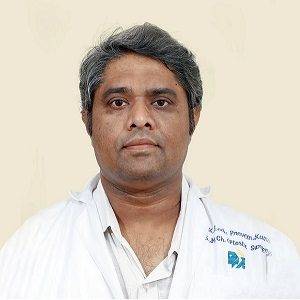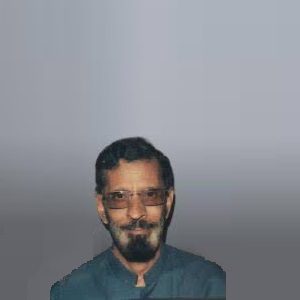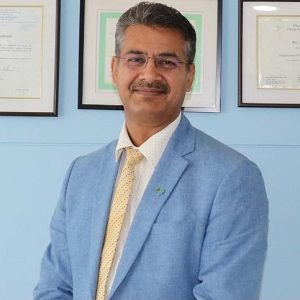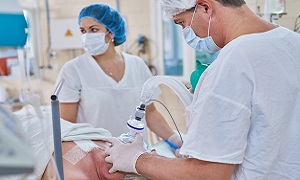Best Doctors in India for Liposuction Surgery
- Plastic Surgeon and Cosmetic Surgeon, Chennai, India
- Over 22 years’ experience
- Apollo Hospitals Greams Road
Profile Highlights:
- Dr. Leela Praveen Kumar is one of the top Plastic Surgeons in Chennai with more than 22 years of dedicated experience.
- The doctor is frequently visited by the patients for Breast implants, Vaser Liposuction, rhinoplasty, facelift, Breast Reduction, Bariatric Surgery, Microsurgery, Body contouring, Hand surgery, and Onco Reconstruction.
- Dr. Leela Praveen Kumar also manages a non-Surgical fat reduction procedure, known as Cryolipolysis.
- Plastic Surgeon and Cosmetic Surgeon, Chennai, India
- Over 40 years’ experience
- Apollo Hospitals Greams Road
Profile Highlights:
- Dr. Sundararajan M S is one of the best Plastic Surgeons in India, having practiced for more than 40 years.
- The doctor offers lipo filling, body contouring, non-Surgical facelift, tummy tuck, implants, etc.
- Dr. Sundarajan bagged the Best paper award in 2008 & 2013 and the other Gold Medal for his contribution to the field.
- Plastic, Aesthetic and Reconstructive Surgeon, Gurugram, India
- 25 + years’ experience
- Medanta-The Medicity, Gurgaon
Profile Highlights:
- Dr. Aditya Aggarwal is a distinguished plastic surgeon with a career spanning over 25 years, currently serving as the Vice Chairman of the Department of Plastic, Aesthetic, and Reconstructive Surgery at Medanta The Medicity.
- Dr. Aggarwal’s expertise in cosmetic and reconstructive surgery has earned him both national and international acclaim.
- Dr. Aggarwal’s medical journey began with training at the prestigious IMS BHU Varanasi and KGMC Lucknow (now KGMU), followed by advanced fellowships in Taiwan, Japan, the United Kingdom, and Germany.
Best Hospitals in India for Liposuction Surgery
Hospital Highlights:
- Apollo Hospitals is a private healthcare group in India, with its headquarters based in Chennai. Established in 1983 by Dr. Prathap C. Reddy, the group offers a wide range of medical treatments and services across various specialties.
- It is renowned for emphasizing innovation and utilizing cutting-edge medical technologies into patient treatment.
- Known as India’s first corporate hospital, Apollo Hospitals is often credited for pioneering the private healthcare revolution in the country.
- With clinics and hospitals located all throughout India, Apollo Hospitals is a nationwide healthcare organization. Its presence can also be found in foreign countries.
- Preventive health examinations, medical and surgical treatment, and diagnostic centres are just a few of the services that the Apollo group provides.
- The group has several centres of expertise, including Cardiac Sciences, Neurosciences, Orthopedics, Emergency Care, Cancer Care, and Organ Transplantation.
- City: Chennai, India
Hospital Highlights:
- RIMC is a multi-specialty hospital in a sprawling area of 36 acres located in Chromepet, Chennai, Tamil Nadu, India.
- The facility has 450 beds including 130 critical care beds, 9 operating rooms, modern reference laboratories and radiology services, and is conveniently located near road, rail and air transportation.
- RIMC is led and managed by world-renowned physicians committed to healthcare.
- RIMC offers the broadest range of clinical care, education, and research. The hospital offers state-of-the-art technology and modern treatment facilities designed to provide health care at an affordable cost.
- Rela Institute is driven by patient needs, comfort and confidence.
- City: New Delhi, India
Hospital Highlights:
- Fortis Hospital in Shalimar Bagh is a multi-super specialty hospital that strives to provide world-class patient care by leaving no stone unturned.
- Fortis, Shalimar Bagh, with 262 beds and a 7.34-acre footprint, provides the best level of medical care through its team of doctors, nurses, technicians, and management professionals.
- City: Bengaluru, India
Hospital Highlights:
- Established in 2007, the Apollo Hospitals Bangalore is a 300-bed multispecialty hospital situated in Bannerghatta Road, Bangalore.
- Equipped with the state-of-the-art technology, it is a leading hospital dedicated to providing healthcare needs to patients with compassion and expertise.
- It is the first hospital to have completed the highest number of Robot Assisted Heart Surgeries in India.
- Over the years, it has successfully conducted some of the rarest medical procedures such as spinal angiolipoma excision, autologous chondrocyte implantations, and tibial tuberosity shift with MPSL reconstruction.
- The Apollo Hospitals Bangalore has the reputation of performing the greatest series of airway stents in the country.
- Additionally, the hospital is known for providing comprehensive treatment in specialties such as gastroenterology, urology, gynecology, oncology, colorectal surgery, etc.
- The “The Minimal Access Surgery Centre” (MASC), one of Apollo Hospitals, Bangalore’s premier Centres of Excellence, is devoted to the use of minimally invasive surgical procedures.
- In 2013, THE WEEK-A C Nielsen, Best Hospital Survey ranked Apollo Hospitals Bangalore as the 2nd best multi-speciality hospital in Bangalore.
- City: Mumbai, India
Hospital Highlights:
- Gleneagles Global Hospital The 450-bed facility comprises of 17-stories, housing state-of-the-art infrastructure, and advanced medical care facilities.
- The hospital offers end-to-end clinical, surgical, and diagnostic services. It is equipped with a team of eminent medical professionals aided by qualified nurses and medical staff
- The Hospital offers advanced Endoscopic procedures, Hepatobiliary and Liver Surgeries, Surgical and Medical Gastroenterology, Bariatric Surgery, and Robotic surgery.
- The hospital is a center of excellence for Orthopedics, Joint Replacement, Knee Replacement, and Hip Replacement surgery.
- City: Hyderabad, India
Hospital Highlights:
- CARE Hospitals were established in the year 2000, by CARE Group.
- The multispecialty hospital has 435 beds, including 120 critical care beds, with an annual inflow of 180000 outpatients and 16,000 in-patients.
- The hospital provides specialty medical services in Cardiology, Cardiothoracic Surgery, Pediatric Cardiology, Pediatric Cardiothoracic Surgery, Neurology, Neurosurgery, Nephrology, and Urology.
- The hospital has the first dual source, 128 slice CT scanner (for high precision cardiac imaging) – the first of its kind in south India.
- The hospital offers a wide range of accommodation facilities for the convenience of its varied patient base, ranging from general wards to super deluxe rooms.
- City: Mumbai, India
Hospital Highlights:
- Fortis Hospital in Mulund is a 315-bed multi-speciality tertiary care hospital with five JCI accreditations that offers a wide variety of diagnostic and treatment services. The Fortis Hospital in Mulund delivers patient-centred treatment with cutting-edge technology, highly skilled and experienced surgeons, and paramedical staff.
- This institution houses Maharashtra’s largest multi-organ transplant centre. It is also the first heart transplant centre in western India to conduct 100 or more consecutive heart transplants in under four years. It is the only hospital in the city to have multi-organ transplants and has handled the youngest patient for angioplasty. Fortis Hospital Mulund now boasts the first advanced surgical robot in central Mumbai.
- Cardiology and heart surgery, urology, nephrology, neurosciences, orthopaedics, digestive care, emergency and critical care, and maternity care are among the services provided by the hospital.
- City: New Delhi, India
Hospital Highlights:
- Manipal Hospitals, Dwarka, is a super-specialty hospital in Dwarka, New Delhi, which is a part of Manipal Hospitals Group.
- The hospital aims to provide the best treatment on par with international standards at a fraction of the cost.
- Equipped with 380 beds, the hospital is also one of the new age hospitals which are equipped fully with state-of-the-art infrastructure, cutting-edge technology as well as the latest and advanced clinical practices. The hospital also has 13 modular Operation theatres with 118 beds which are solely meant for critical care.
- The hospital comprises internationally acclaimed doctors and highly professional and experienced hospital and medical staff who are able to provide preventive, therapeutic, and diagnostic services all under one roof.
- City: Chennai, India
Hospital Highlights:
- Located in Chennai, India, MGM Healthcare is a top multispecialty hospital that provides all medical services under one roof.
- Since its founding in 2019, MGM Healthcare has quickly become a leading national referral centre, creating several innovative flagship initiatives.
- MGM Healthcare combines next-generation medical and digital technologies to provide better patient results.
- With 12 centres of excellence, more than 400 inpatient beds, 100 intensive care unit beds, and 24/7 emergency care, MGM Healthcare leaves no chance in redefining the patient experience in Chennai.
- MGM Healthcare boasts 250+ expert doctors across 30+ departments, including Cardiology, Pulmonology, Neurology, Obstetrics & Gynaecology, and more.
- They house 12 specialized Centres of Excellence, including Neurosciences, Orthopaedics, and Multi-Organ Transplantation.
- Their team of doctors, nurses, and paramedics works together to give every patient individualized treatment.
Hospital Highlights:
- Lilavati Hospital & Research Centre is India’s premier multi-speciality tertiary care hospital and has been recognised as a global medical excellence centre.
- Lilavati Hospital & Research Centre has built an unrivalled level of trust with its patients over the years, thanks to a solid foundation that comprises cutting-edge facilities, the best medical competence, research, education, and charity endeavours.
- The hospital is quite proud of the fact that it now serves patients from all kinds of backgrounds, not just from the United States but from all around the world.
- The hospital has a total of 323 beds, one of the largest Intensive Care Units (ICUs), 12 Operation Theatres with modern amenities, over 300 consultants, and almost 1,800 personnel.
Liposuction
Liposuction, which is also termed as lipectomy, lipoplasty or liposculpture suction, is a type of cosmetic procedure, which can break up and suck the fat out of the body. It can be used to remove fat from body parts such as the abdomen, neck, buttocks, chin, back, etc. The fat is removed using a hollow instrument known as a cannula, inserted under the skin, after which a powerful, high-pressure vacuum is applied to it. The procedure is carried out under general anesthesia.
Though liposuction can permanently remove fat cells in one’s body, which will alter the body shape, one needs to remember that if the patient refuses to lead a healthy lifestyle after the operation, there is a huge risk that the remaining fat cells will grow even bigger. Though there are some risks in this operation, it is linked to the amount of fat that was removed during the procedure. After the procedure, the skin molds itself to the new contours of the areas which were treated. If your skin tone and elasticity are good, the skin will likely appear smooth. However, if you have thin skin with poor elasticity, the skin in the treated areas might appear loose.
To be able to go through liposuction, it is important that you are in good health without conditions that might cause complications to the procedure. If you have conditions such as diabetes, weak immunity, restricted blood flow or coronary artery disease, complications might likely occur.
Why it is done
People who go through this procedure have more body weight than normal. Therefore, they use it to remove undesirable fat deposits in some specific body parts. However, liposuction should not be considered a treatment for obesity or an overall weight-loss method.
The main purpose of liposuction is to improve the appearance rather than to provide benefits to physical health. The same or even better results can be achieved through a healthy lifestyle, a healthy balanced diet, exercising regularly and proper sleep. Liposuction is advisable only if lifestyle changes have been unable to achieve the results which one was expected. Before one goes for the operation, proper consultation with the doctor is highly recommended.
Preparation
Before the procedure, it is important that you discuss with your surgeon regarding your expectations from the procedure. Your surgeon will review your medical history and ask you regarding any medical conditions which you might be having and any medications, herbs or supplements that you might use. Your surgeon might also ask that you stop taking certain medications such as NSAIDs, at least around three weeks before the procedure is performed.
If only a small amount of fat needs to be removed, your procedure can be done in an office setting. But if a large amount needs to be removed, the procedure has to be done in a hospital, and it will require you to stay overnight as well. In either case, you should consider arranging someone who can drive you home and can stay with you for at least the first night after the procedure.
Types of Liposuction
Tumescent Liposuction is known to be the most common type of liposuction. The surgeon first injects a sterile solution, which is a mixture of saltwater to aid in removing the fat, an anesthetic to relieve the patient’s pain and a drug that will make the blood vessels constrict into the areas that are being treated. Due to the mixture, the affected areas might swell and stiffen.
After this, the surgeon makes small cuts into the patient’s skin after which he inserts a cannula, a thin tube into the skin. This is connected to a vacuum that will suction the fat and fluids from the body. Your body fluid can also be replenished through an intravenous line.
Laser-assisted liposuction is another technique that uses high-intensity laser light which breaks down the fat to remove them. During this technique, the surgeon inserts a laser fiber through an incision in the skin and emulsifies the fat deposits. After this, a cannula is used to remove the fat.
Power-assisted liposuction is another type of liposuction in where the surgeon uses a cannula which moves in a rapid back-and-forth motion. Due to this vibration, the surgeon can pull out tough fat far more easily as well as faster. This method also involves less pain and swelling and allows your surgeon to remove the fat more precisely. This technique is usually used when you have large volumes of fat that require removal.
Ultrasound-assisted liposuction is a type of liposuction is used in conjunction with the traditional liposuction method. During this method, the surgeon inserts a metal rod, which emits ultrasonic energy under the skin. This can rupture the fat-cell walls, resulting in the breaking down of the fat, making them easy to remove.
During the procedure
Some liposuction procedures might require only local or regional anesthesia, as anesthesia is limited to specific areas of the body. However, other procedures can require general anesthesia, which can induce a temporary state of unconsciousness. You might receive a sedative, through a IV injection, so that you can remain calm as well as relaxed.
Your heart rate will be closely monitored by the surgical team, along with your blood pressure and blood oxygen level throughout the procedure. If you were given local anesthesia, and you feel pain during your procedure, inform your surgeon, as your medication or motions may require adjustment. Depending on the fat that needs removal, the procedure can last up to several hours.
If you were administered general anesthesia, you will wake up in the recovery room. If you are in a hospital, you might need to stay overnight to make sure that you’re not dehydrated or in shock due to the fluid loss.
Results
After the procedure, the swelling should subside within a few weeks. The treated area will look less bulky over time. Within several months, you can expect the treated area to have a much leaner appearance.
Though it is natural for the skin to lose some firmness with aging, liposuction generally gives long-lasting results if you are able to maintain your weight.
Risks
There are also a few risks of this procedure, which might result in some complications or side effects. They include:
- Severe bruising which can last up to several weeks.
- Numbness in the affected area for a while, but this is temporary
- Inflammation and swelling which can take up to 6 months to settle
- Thrombophlebitis, a blood clot which forms in a vein can also cause inflammation
- If there is poor skin elasticity or if the fat removal has been uneven, it is possible that the skin can appear withered, wavy, or bumpy.
- Anesthesia involves a small risk of death as well.
- Although it is rare, a skin infection can sometimes occur after the liposuction procedure. This needs to be treated surgically though, with the risk of scarring.
- Although very rare, sometimes liposuction can cause puncture of internal organs.
- Sometimes as the fluids are injected or suctioned, there is a change in the body’s fluid levels, which can cause kidney or heart problems.
- Sometimes, when fluid is injected into the body, it can accumulate in the lungs, which is called pulmonary edema.
- Sometimes, fat can get into the blood vessels, and travel into the lungs, which can block the circulation. Know as pulmonary embolism, this can be quite dangerous life-threatening.
- The cannula movement can sometimes lead to friction burns to the skin or the nerves.














